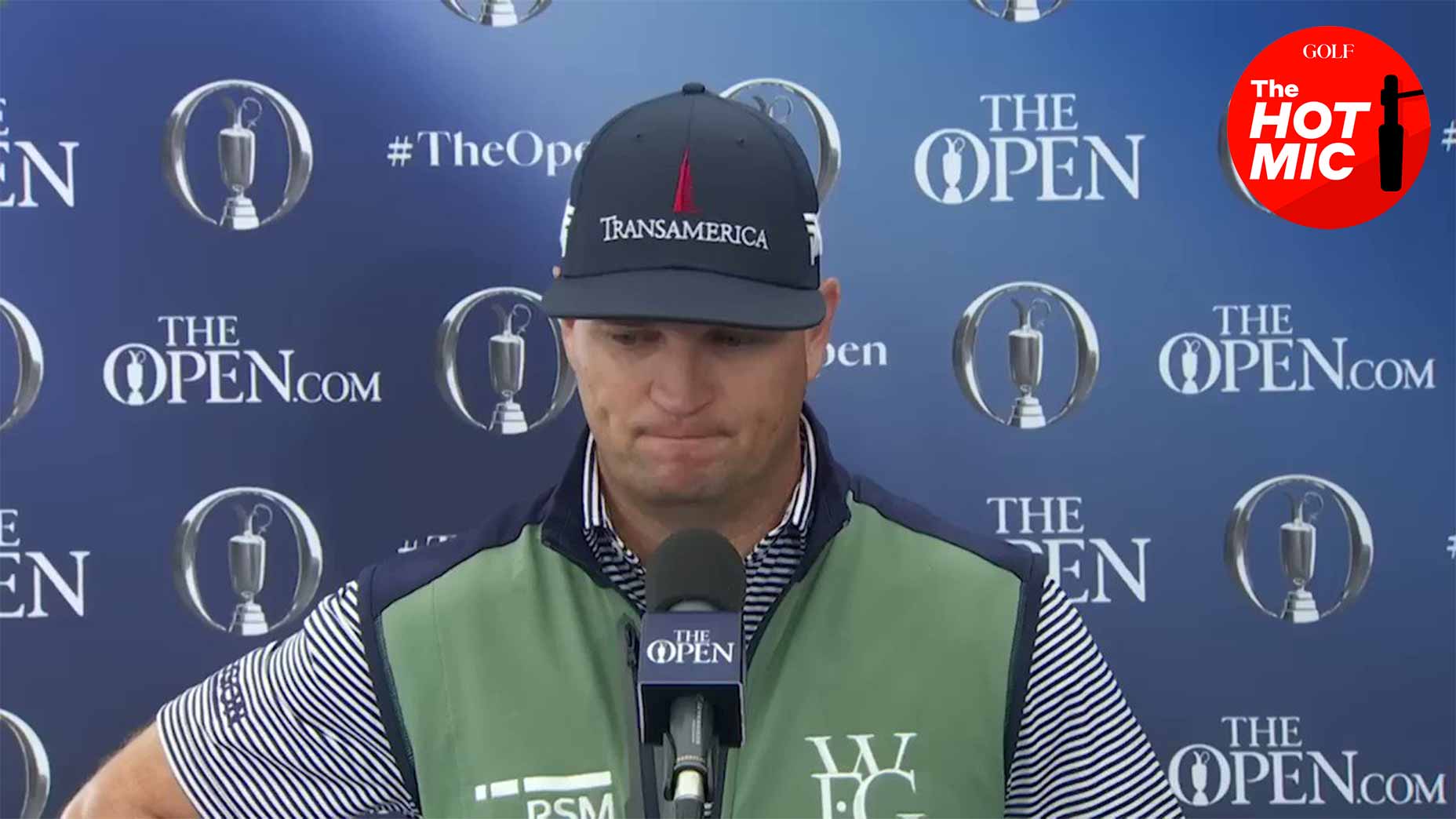With 8-word response, Zach Johnson delivered valuable journalism lesson

Zach Johnson's Sunday press conference at the Open reminded the sportswriting world of a valuable lesson.
Getty Images
It was the kind of question you frequently hear at press conferences. The kind that often elicits short, cliche-filled responses.
That’s largely because the query was less a question than it was a command — and those who voluntarily agree to meet the press might fairly expect that they will be…asked questions.
On Sunday afternoon at the Open Championship, the inquiry was directed at U.S. Ryder Cup captain Zach Johnson, who had just finished his fourth round and appeared on the brink of having the calculus of his roster changed by a surprise major champion named Brian Harman.
“We don’t know exactly what’s going to happen this afternoon, but could you talk about Brian?“
”Sure,” Johnson said, not missing a beat. “Can you ask me some questions about Brian?”
It didn’t take long for Johnson’s response to permeate Sports Twitter, where garden-variety media cynicism and journalist-dunking are favorite pastimes. But the trolls weren’t alone in their criticism; journalists and journalism academics chimed in, too, perhaps in the hopes of turning the exchange into a teachable moment for the next generation of question-askers.
“My @Cronkite_ASU students all know my greatest #journalism #interviewing pet peeve – the TALK ABOUT question,” tweeted Brett Kurland, assistant dean at Arizona State University’s Walter Cronkite School of Journalism & Mass Communication. “Zach Johnson’s response to the TALK ABOUT question he was asked yesterday at The Open Championship, about eventual champ Brian Harman, was perfect.”
“’Talk about’ questions make me cringe,” added Mike Wells, a journalism lecturer at the Media School at Indiana University.
“Tremendous answer to the worst journalist question ever … the ‘talk about,'” noted Nick Daschel, a sportswriter for The Oregonian.
It’s unlikely Johnson was seeking to become a journalism-school hero, nor do I think he was trying to teach those reporters before him any sort of lesson. Best I can tell, he was simply being himself: tough minded and self-assured, and unafraid of the occasional awkwardness that comes with those traits.
In a handful of personal interactions I’ve had with Johnson, including a pair of interviews in the last several months, I have found him happy to talk. I have not, however, found him willing to be a quote-machine at my behest. Ask a good question? You’ll get an earnest, thoughtful answer. Ask a bad one? You’ll get, well, a bad answer.
As for the question-asker in this instance, I sympathize with him. While the ”talk about” is a capital offense in the professional sportswriter’s handbook, I’ve also attended enough pressers to know that some questions just need to be asked, and it can be hard to sound thoughtful with all of them.
Every sportswriter has a story of a question gone awry. I certainly do. And while my experience didn’t result in a social-media firestorm, it did result in a tail-between-legs walk to the Augusta National media center that still makes me cringe to think about. We’ve all been there — even those of us who like to act like we haven’t.
There are no “bad guys” in this situation — just two people trying to do their jobs. Mistakes happen, and in this profession they (usually) are not fatal. This episode also is a sign of a healthy relationship between our subjects and you, our audience. That is an inherently good thing, particularly after these last few months.
These are strange times for golf journalism. Player relations with the media have shown frays in the wake of an ugly and divisive year. In just the last few weeks, a group of players staged a public condemnation of a columnist, and one player, Lee Westwood, wrote a piece criticizing the tone of a golf outlet’s coverage. Stars increasingly are declining media availabilities all together — a reflection of both the chaos in the sport and a growing sense that the juice may not always be worth the squeeze.
This is not true, of course. Most of the golf media does very good work, and the many smart voices in the room deserve credit for their honesty and integrity. But as those same media members know all too well, it doesn’t take much B.S. to undo a whole lot of good.
The best path forward? As I see it, it is for golf journalists to strive to make every player availability worthwhile, both to our audiences and to the players themselves. Let earnest conversations and thoughtfulness rule, not the pursuit of a cheap quote or a headline.
Hard questions must and should be asked, but let’s all pledge to make sure they’re, you know, actual questions.
The author welcomes your thoughts (and questions) at james.colgan@golf.com.





